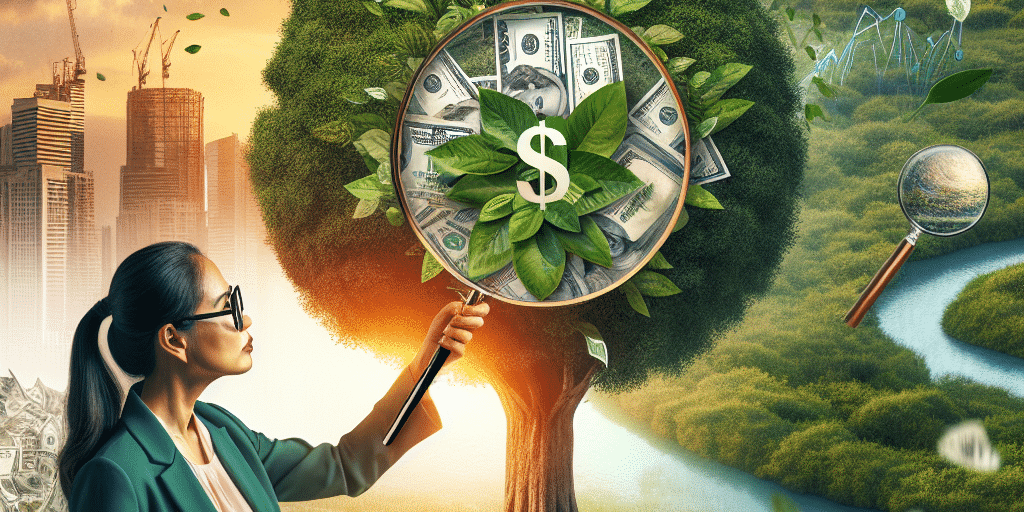In our rapidly evolving world, the convergence of climate change, social equity, and technological advancement has ushered in an era of transformation—one that is defining how wealth is generated, preserved, and invested. Family offices, which manage the wealth of ultra-high-net-worth families, are increasingly recognizing the importance—and necessity—of aligning their investment strategies with sustainable practices. This article explores how family offices are adapting to this "green evolution" and what it means for the future of investing.
The Shift Toward Sustainable Investing
Historically, many family offices have focused on traditional investments with the primary aim of capital preservation and growth. However, the past decade has seen a seismic shift in mindsets, largely driven by younger generations who prioritize sustainability and social responsibility. These heirs and heiresses are not only inheritors of wealth; they are advocates for a sustainable future.
According to a report by the Global Impact Investing Network (GIIN), an increasing number of family offices are gravitating toward impact investing, which emphasizes generating measurable social and environmental impact alongside financial returns. The 2021 GIIN survey found that 70% of family offices were engaged in some form of impact investing. This trend reflects a growing recognition that sustainable practices and investment returns are not mutually exclusive. In fact, businesses that prioritize sustainability often outperform their less conscious competitors.
Key Areas of Focus for Sustainable Family Office Investments
-
Renewable Energy: Family offices are increasingly channeling investments into renewable energy sectors such as solar, wind, and geothermal technologies. Investments not only contribute to a greener economy but also tap into a market that is expected to grow significantly in the coming years. For instance, according to the International Renewable Energy Agency (IRENA), the renewable energy sector employed around 11 million people globally in 2018, a number expected to rise as demand for clean energy solutions expands.
-
Sustainable Agriculture: With the frustrations of the pandemic underscoring global food supply vulnerabilities, investments in sustainable and regenerative agriculture have gained traction. Family offices are funding innovations in organic farming, vertical farming, and aquaponics, which offer scalable solutions to food crises while promoting environmental stewardship.
-
Green Real Estate: Incorporating sustainability into real estate development and investment is becoming standard practice for family offices. Green buildings not only help reduce carbon footprints but also enhance tenant satisfaction, lower operating costs, and increase property values. Investments in energy-efficient designs and sustainable materials are paving the way for a resilient and eco-friendly real estate market.
- Technology for Good: Family offices are also investing in technologies that promote sustainability, such as clean tech, biotechnology, and water management systems. Innovative solutions that monitor and reduce carbon emissions, improve water quality, and promote circular economies are vital for addressing global environmental challenges.
The Role of Philanthropy and Collaboration
In addition to direct investments, many family offices leverage their philanthropic arms to support initiatives that promote sustainability. Collaborative efforts with nonprofit organizations and social enterprises can amplify the impact of investments. For example, family foundations are increasingly funding education programs that raise awareness about sustainability challenges and solutions, thus fostering a broader cultural shift toward sustainable practices.
Moreover, syndicate investing—where multiple family offices band together to pool resources—can create a more significant impact in sustainable investments. Collaborations not only spread financial risks but also enhance the likelihood of successful outcomes by combining expertise in various sectors.
The Challenges Ahead
Despite the enthusiastic embrace of sustainable investing, family offices face several challenges. The lack of standardized metrics for measuring social and environmental impact remains a barrier to widespread adoption. Furthermore, navigating regulatory landscapes, which can vary greatly across regions and sectors, necessitates proficiency in understanding compliance issues.
In addition, the balancing act between achieving robust financial returns and committing to sustainable practices can prompt skepticism about whether the two are inherently aligned. Family offices must continuously educate themselves and engage with experts to ensure their decisions are both financially astute and socially responsible.
Conclusion: Embracing a Sustainable Future
The green evolution signifies more than a mere trend of sustainability; it embodies a fundamental shift in values shaping the financial landscape. Family offices are uniquely positioned to lead this transformation by integrating sustainability into their investment strategies.
This movement toward sustainable investments is not just about doing good; it represents a recognition that sustainable practices are essential for long-term economic viability. As this evolution continues, family offices can help drive significant change, nurturing a future where wealth not only creates prosperity but also protects the planet for generations to come. In a world beset by environmental challenges, this is an investment strategy that promises to pay dividends far beyond mere financial returns.










